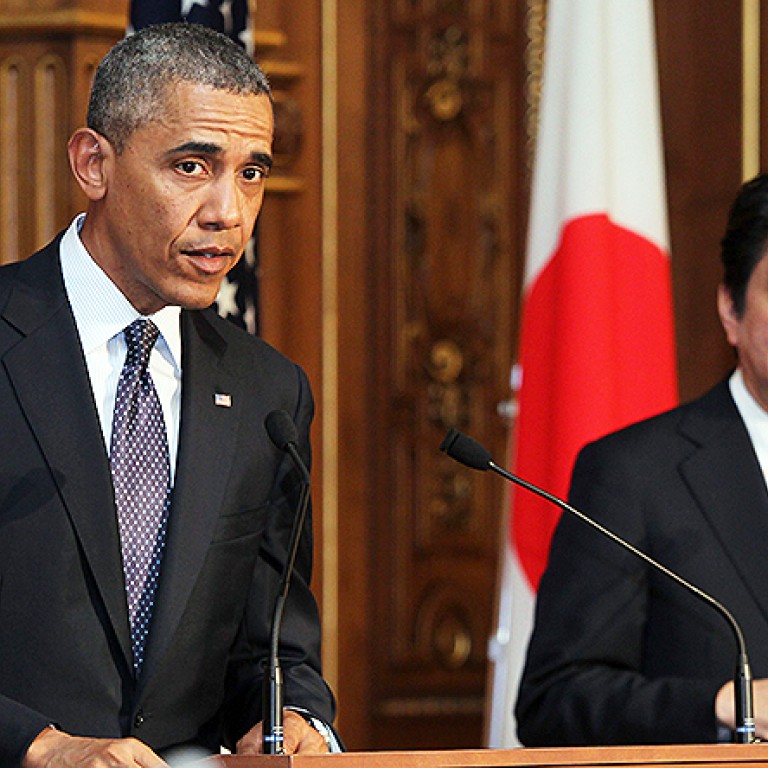
US must reboot its Asia 'rebalance' with more high-level engagement
Timothy Adamson, Michael Brown and Robert Sutter say Obama's trip to region is a start, but more high-level diplomacy is needed
President Barack Obama's trip to Asia comes at a critical point for the region. When the administration signalled a "rebalance to Asia" in US foreign policy during the president's first term, many countries in the region welcomed the military, economic and diplomatic steps taken by the US to guarantee regional stability in view of the rise of China.
Unfortunately, the rebalance has faltered over the last 10 months due to a series of US policy setbacks and presidential miscues.
Given China's emergence as an economic and military power, the United States must take concrete steps to demonstrate its commitment to Asia
In June last year, revelations about the National Security Agency's surveillance programmes damaged US relations with key allies and undermined Washington's complaints about China's cyber behaviour. In August and September, Obama retreated from his "red line" in Syria, raising questions about his resolve. Later in September, the president barely mentioned Asia in his address to the UN General Assembly - hardly a good way to emphasise an explicit foreign policy priority.
In October, the federal government shutdown was a major blow to US credibility as a reliable strategic partner and fed into Chinese commentary of a "post-American world". Obama added to the damage by cancelling his trip to Asia, where he had been scheduled to attend important regional summits. Subsequently, the US response to China's November announcement of an air defence identification zone in the disputed East China Sea was too accommodating. The malaise continued this year, with the Pentagon announcing deep cuts in US defence spending.
These setbacks are not trivial, but they can be overcome. Obama needs to take several steps to reboot the rebalance.
First, the president and his advisers must recognise that the success of the rebalance depends on sustained and steady high-level engagement in the region. Policy mistakes and flip-flops are highly counterproductive.
Second, Washington must demonstrate that it has the strategic bandwidth to focus on Asia and other parts of the world at the same time. The Middle East and Russia are pressing problems, but the administration has to keep its eye on the geostrategic ball - Asia. The president should therefore spend more time in Asian countries over the remainder of his term.
However, presidential visits alone will not suffice. Given China's emergence as an economic and military power, the United States must take concrete steps to demonstrate its commitment to Asia. The US Navy plans to add two destroyers and two attack submarines per year to its fleet. This is a good start, but the Pentagon should go beyond procurement plans and provide more details about long-term deployments in the Asia-Pacific. In the economic arena, the administration should step up its efforts to conclude the Trans-Pacific Partnership agreement this year.
Finally, the administration must handle a delicate balancing act with more skill - that means maintaining a stable relationship with Beijing while reassuring allies and friends increasingly worried about China.
To maintain this balance, the administration must be more explicit about the carrots and sticks it is prepared to use to sustain the US role as a regional stabiliser in the face of China's maritime actions in the East China and South China seas.
The Obama administration's rebalancing strategy is based on sound strategic judgments: Asia will become increasingly important in the decades ahead, changes in the balance of power in Asia will produce tensions, and the United States will be one of the keys to regional stability. To be successful, the administration must overcome its recent setbacks, re-emphasise its commitment to Asia and implement its strategic vision with stronger, steadier policies.

